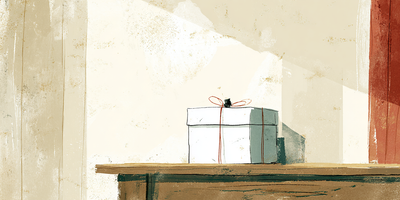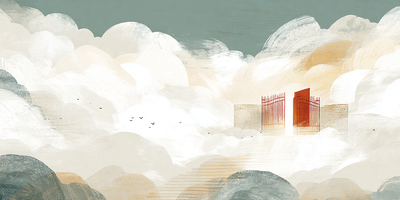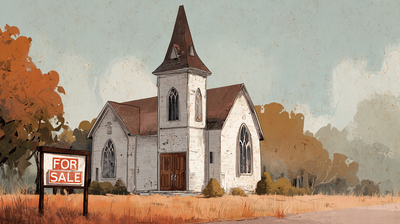When Evil Becomes Empathy: Why Hollywood Keeps Glorifying Villains Instead of Heroes
Have you noticed it too?
It seems like somewhere along the way, the line between good and evil in movies started to blur. The villains aren’t just misunderstood anymore—they’re often celebrated. Films today don’t just tell you why the bad guy became bad. They want you to root for him. They give him style, swagger, and a backstory that justifies his destruction. Meanwhile, heroes? They’re either pushed to the margins or portrayed as boring, broken, or worse—hypocritical.
But why? Why does modern entertainment lean so hard toward sympathizing with evil? And what does that say about our culture—and our hearts?
Let’s explore it together.
✅ The Rise of the Antihero and the Fall of the Moral Compass
Once upon a time, we cheered for heroes—real heroes. Think of George Bailey in It’s a Wonderful Life, Atticus Finch in To Kill a Mockingbird, or even Frodo Baggins in The Lord of the Rings. These characters stood for truth, sacrifice, justice, and humility.
But today's Hollywood seems obsessed with a different kind of figure: the antihero.
✅ They bend the rules.
✅ They act out of revenge.
✅ They leave a trail of destruction—but the audience is told to understand. To relate. To applaud.
Think of movies like Joker, Cruella, Maleficent, or Venom. The spotlight shifts from the hero to the villain, and not for the sake of truth—but for the sake of “gray morality.”
Suddenly, evil isn’t something to be defeated. It’s something to be explained. Maybe even embraced.
📖 What the Bible Says About Calling Evil Good
Isaiah 5:20 is hauntingly clear:
“Woe to those who call evil good and good evil, who put darkness for light and light for darkness…”
This verse isn’t just ancient prophecy—it’s a mirror for our modern movie culture.
We’re living in a time when stories are being retold with darkness at the center. Disney now makes movies where the villains are "misunderstood queens" or "victims of circumstance." Supervillains in DC and Marvel films are given entire franchises. Their pain is paraded as a justification for their sin.
But Scripture doesn’t give sin a backstory—it gives it a Savior.
🧠 Psychology vs. Theology: Understanding Isn't the Same as Excusing
It’s true—villains often have traumatic pasts. Abuse. Neglect. Betrayal. These are real wounds, and Christians should care deeply about human suffering.
But here’s the danger: Understanding sin is not the same as excusing it.
Modern storytelling uses psychology as a backdoor to absolve responsibility. Instead of confronting evil, it’s dressed up with designer trauma and clever monologues.
But the cross tells a different story.
At Calvary, Jesus didn't make excuses for our sin—He bore the weight of it. He didn’t justify our brokenness—He redeemed it. There’s a massive difference between saying, “They’ve been hurt” and saying, “Therefore, they’re justified in hurting others.”
🎬 Examples from Modern Movies: When Villains Become the Main Characters
Let’s look at how this trend is playing out:
🃏 Joker (2019)
Arthur Fleck is mentally ill, bullied, and discarded by society. The film makes it clear: he’s a product of his environment. But by the end, the audience is left clapping for a man who murders without remorse.
It’s cinematic brilliance—but moral chaos.
👑 Maleficent (2014)
This retelling of Sleeping Beauty casts Maleficent not as a villain, but as a betrayed woman seeking justice. Aurora’s curse becomes a byproduct of her pain—and in the end, love redeems her.
But notice: the actual evil—cursing a baby—is minimized.
Need help creating faith-filled content for your blog or ministry? I offer Christian blog writing, devotional writing, and SEO content services.
Work with me here →🕷️ Venom (2018)
A parasite that kills, devours, and dominates—but with comedic timing and a soft spot for its host. We’re not just meant to tolerate Venom. We’re meant to like him.
Even in children’s films, such as Despicable Me or Megamind, the villain is the protagonist. Bad is cool. Good is lame. Being “nice” gets you friend-zoned. Being “edgy” gets you an origin story.
🙋♂️ What Happens to the True Heroes?
While villains get nuanced arcs, true heroes are increasingly rare—or ridiculed.
✅ They’re called naïve.
✅ They’re mocked for their morals.
✅ Their victories are seen as “privilege.”
✅ Their flaws are amplified instead of their integrity.
In some cases, the hero becomes a footnote in his own story.
This cultural trend mirrors the spiritual pattern of Romans 1, where humanity exchanges truth for lies and worships the creature instead of the Creator. We’re not just confused about who the villain is—we’re confused about what makes someone good in the first place.
🙌 Why Christians Still Need Heroes
The Gospel is the ultimate hero story.
Christ is the perfect and sinless Hero who enters our story, fights for the weak, overcomes death, and rescues the unworthy. His victory is not moral ambiguity—it is righteousness embodied.
We need stories that point upward.
✅ Stories that remind us good is still worth fighting for.
✅ Stories that show selflessness wins over selfish ambition.
✅ Stories that don’t apologize for calling sin, sin.
✅ Stories that whisper redemption louder than revenge.
🔍 Why This Matters More Than We Think
This isn’t just about movies. This is about the soul of a generation.
When entertainment consistently rewards vengeance, moral relativism, and pride, it reshapes how people think, live, and love. What we watch repeatedly starts to seep into what we believe.
And beliefs have eternal consequences.
Proverbs 4:23 tells us, “Above all else, guard your heart, for everything you do flows from it.”
If our hearts are daily being filled with stories where darkness is stylish and sin is sympathetic, how long before we stop noticing evil altogether?
💡 How Christians Can Respond
We don’t need to cancel movies. We need to engage them—with discernment, with Scripture, and with our eyes wide open.
✅ Teach your kids to spot the real message underneath the glamor.
✅ Have thoughtful conversations about media around the dinner table.
✅ Support films and creators that celebrate truth, courage, and real heroism.
✅ Ask, “Would Jesus applaud this?” before you hit play.
🙏 Final Reflection: The Hero We Actually Need
The good news is—no matter how upside-down our culture gets—Jesus remains the unchanging Hero.
He didn’t need a tragic backstory to earn your sympathy.
He didn't require applause to stay faithful.
He didn’t step on others to rise—He stooped low to lift you up.
And He is coming again, not as a misunderstood outcast, but as the victorious King.
So let the world romanticize rebellion. Let Hollywood reimagine sin.
We have a better story.
A true story.
A story where the Hero dies for the villains—and rises to redeem them.
Even us.









